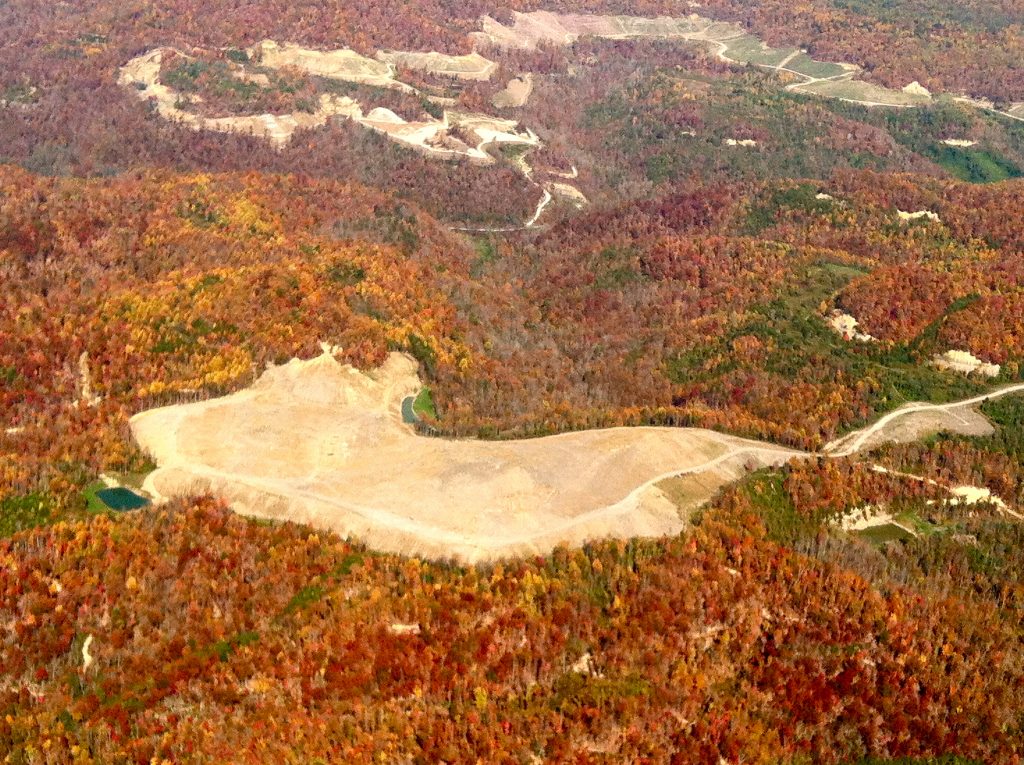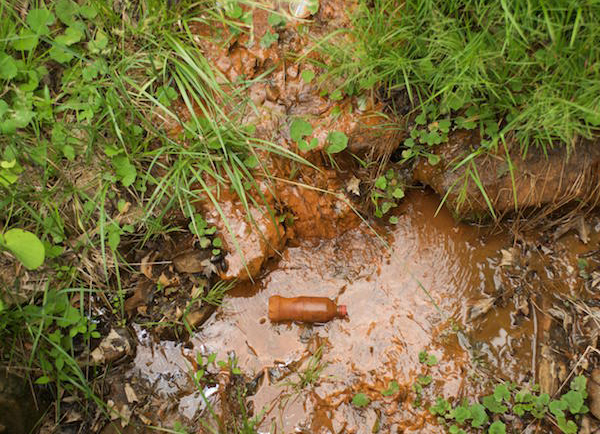Cleaning Up Coal Ash
For well over a century, power plants across the country have burned coal to generate electricity. And for just as long, leftover coal ash has been dumped in open, unlined pits near the power plant, usually located on a river or lake. Every year, U.S. power plants produce 130 million tons of coal ash, which is the second largest waste stream in the country after municipal garbage.
Coal ash concentrates the toxic heavy metals found in coal, including arsenic, mercury, lead and selenium. Stored in unlined, wet impoundments, coal ash has been leaking these toxics into our groundwater and surface waters for years. Sometimes these impoundments collapse — with disastrous results.
Yet government regulations for coal ash management are either non-existent or sparse, and there is little enforcement of the regulations that do exist. In North Carolina, this lack of oversight — and the complicity between state regulators, elected officials and Duke Energy — came to a boiling point in February 2014 when one of Duke’s coal ash impoundments spilled 39 million tons of ash into the Dan River.
Citizens living near North Carolina’s 33 coal ash impoundments — all of which have leaked — have fought for transparency from Duke and the state, and for cleanup of the pollution that threatens their property value, health and family. Their actions forced this issue into the headlines of news networks and to the forefront of environmental justice conversations in the United States.
Appalachian Voices stood with these communities as we worked for years to compel Duke Energy and the N.C. Department of Environmental Quality to excavate coal ash from all the North Carolina sites and dispose of it either in lined, dry landfills, away from waterways, or by recycling it for concrete or other uses, provided it’s done in a manner that protects public health and the environment.
On Jan. 2, 2020, North Carolina announced a historic settlement with one of the state’s most powerful corporations and polluters, Duke Energy. The settlement requires Duke to move nearly 80 million tons of toxic coal ash at six of its power plants to properly lined landfills onsite or recycle it.

Learn information about specific coal ash impoundments in the South, including health threats and safety ratings:
Additional Resources
Fact sheets, videos, links to academic research, and more
Sign Up to Act
Help us protect the health of our communities and waterways.
Latest News
Atlantic Coast Pipeline environmental review falls short
The Federal Energy Regulatory Commission released its draft environmental review of the $5 billion Atlantic Coast pipeline last Friday. Unfortunately, the agency ignored evidence that the proposed 600-mile pipeline, spearheaded by Dominion Resources, is not needed and puts lives, communities, drinking water and the climate at unacceptable risk.
Groups blast FERC findings on fracked-gas Atlantic Coast Pipeline
To all media: America’s next big pipeline fight…
Happy Holidays from our family to yours
A special note from Executive Director Tom Cormons wishing you a happy holiday season and looking forward to 2017.
16,000+ citizens demand unbiased review of fracked-gas Mountain Valley Pipeline proposal
WASHINGTON, D.C. – Over the past three months,…
Mountaintop removal limited — not stopped — in Tennessee
The Obama administration has approved a petition from Tennessee to designate some 75,000 acres of mountain ridges off limits for surface coal mining. The move protects mountain streams, wildlife habitat, scenic views and eco-tourism assets of the iconic Cumberland Plateau. But other mountains in Tennessee are still threatened with mountaintop removal mining. Take action today.
Final Stream Protection Rule released
On Monday, the U.S. Department of the Interior released the Stream Protection Rule, which aims to protect streams from the impacts of surface and longwall mining. The final rule offers only modest improvements to protections for public waterways, but it is well worth defending from congressional attack.









